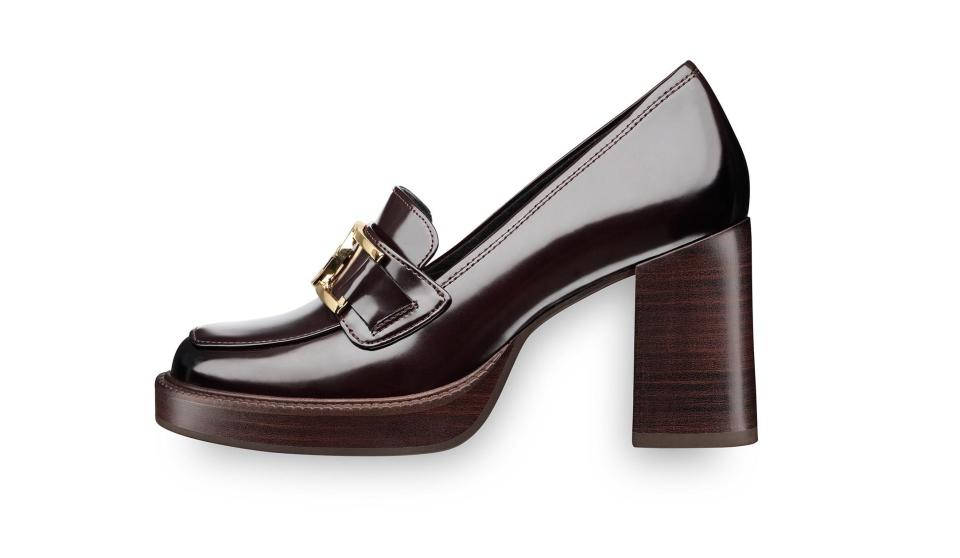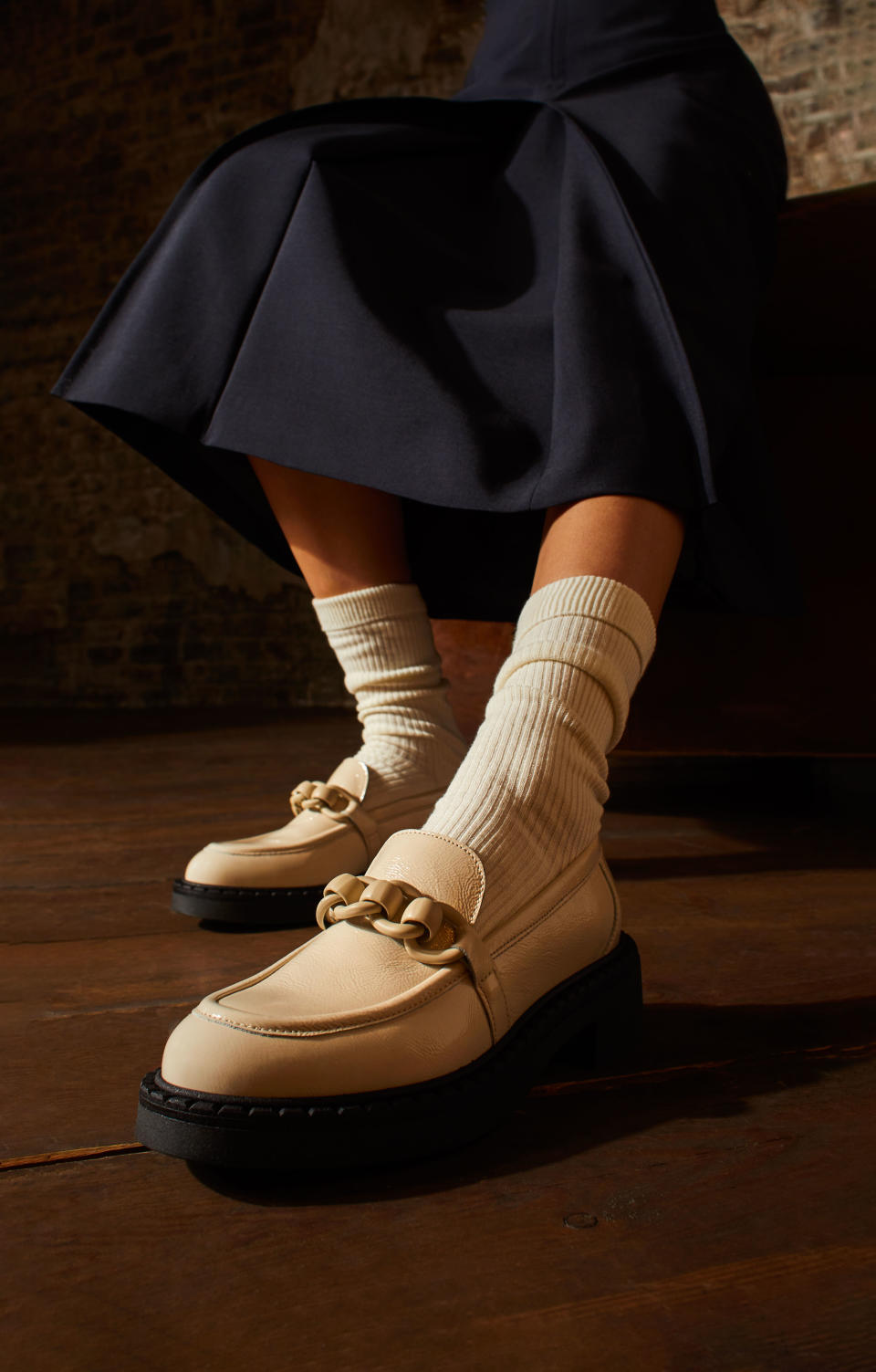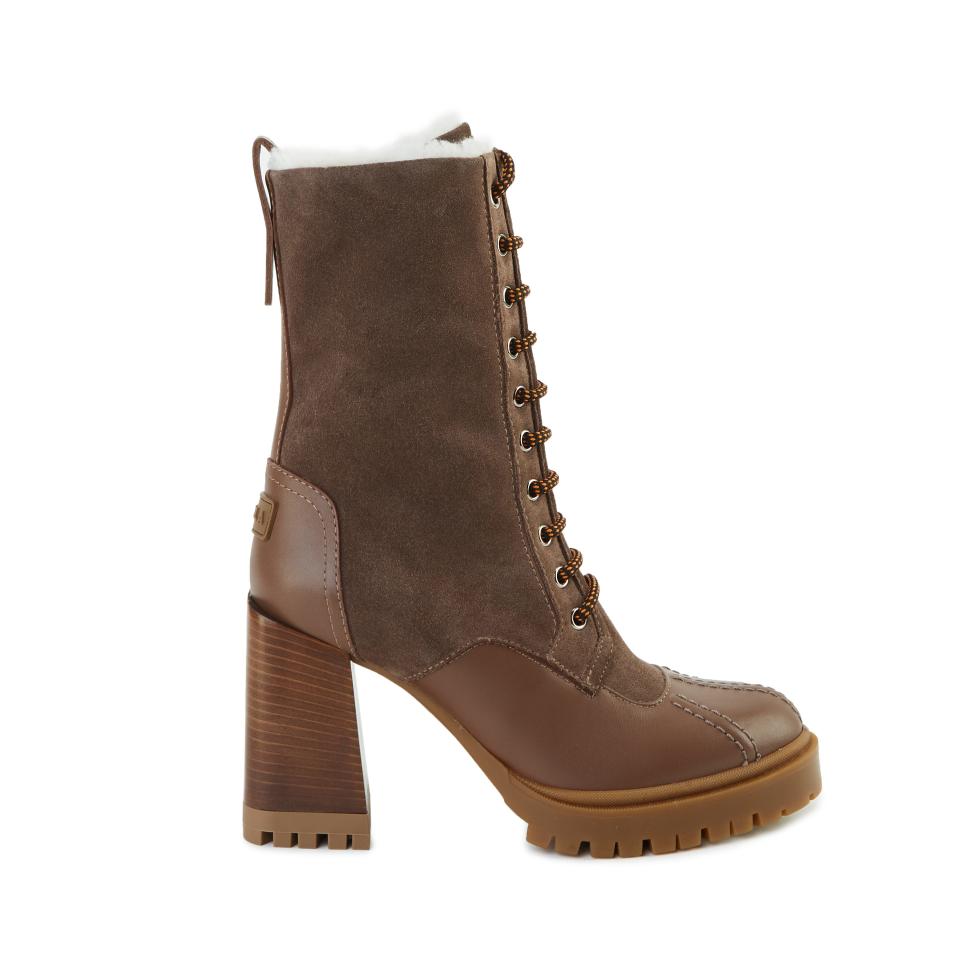Micam Brands Navigate Geopolitical Turmoil, Supply Chain Woes While Banking on Trendy Shoes

MILAN – Political turmoil and the slowdown in post-pandemic recovery, dented by supply chain woes and skyrocketing costs for logistics and energy, dampened the mood at Micam’s fall ’22 footwear trade show.
Some 821 exhibitors and around 29,000 buyers and visitors (including those attending the other three trade fairs held concurrently) flocked to Milan’s Rho Fairgrounds hoping the three-day show, which wrapped today, would signal the return to pre-pandemic stability after strong performances in 2021. But they have instead faced the harsh reality of inflation, war at the heart of Europe and weaker-than-expected resilience in the markets.
More from Footwear News
Some footwear collections played it safe, building on what’s been trending for the past few seasons. Chunky and sculptural-soled boots and booties, as well as chain-bearing sturdy loafers were all the rage, done in muted and earthy-toned nuances. And while sneakers were almost a no-go on the recent runways, Micam provided plenty of playful and decorated styles at the fair.
In 2021 sales of Italian footwear jumped 18.7% to 12.7 billion euros, according to preliminary figures provided by Assocalzaturifici, the sector’s association. They were still 11% below 2019 and reflected a two-pronged recovery, with established brands accelerating and small and medium-sized footwear specialists lagging behind.
Although only 2.7% of Italian shoes are destined for Russia and Ukraine, which generated combined revenues of 317 million euros for the sector last year, there’s fear the crisis there could dampen morale and have ripple effects on other geographies.
Siro Badon, president of Assocalzaturifici, said some footwear districts, including the Marche region, are more dependent on these markets. “They were already hit hard by the sanctions in 2014 [enforced after Russia’s invasion of Crimea], and now they are further penalized [by the war],” he said.
“We’re unable to make predictions. We may have full warehouses with unsold stock; shipped goods that won’t be paid; and just-placed orders that could turn into scrap paper,” he said bluntly, urging the government to intervene offering relief and wage support measures to face uncertainties.
Footwear players, by contrast, seemed more optimistic, touting a strong fall ’22 season so far, while lamenting that the late-dated Micam fair could have an impact on orders.
Badon underscored that very few SMEs can divert their sales to new markets. “It’s too simplistic to say companies can tap into different geographies, the smaller ones simply don’t have enough muscles to do it,” he said.
“With the ruble crisis, it’s yet to be determined how the market will respond,” said Alessandro Olivetti, head of sales in South Europe at Germany-based Tamaris. Russia represents the second most important market for the brand, which didn’t halt its wholesale operations there, namely to preserve its 100 jobs.

Courtesy of Tamaris
Concurrently, supply chain costs and woes are denting profits and causing delays, especially for companies which relocated production overseas, including Tamaris, which relies on Far Eastern facilities for 70% of its goods. By contrast, Verona, Italy-based Frau, which prides itself on a fully integrated Made in Italy pipeline, didn’t face delays.
Similarly, over at Falc, the footwear group operating some six brands across the adult and children’s segments, including Voile Blanche, Wizz and Naturino, CEO Salina Ferretti said that boasting facilities in Italy and Serbia has helped the company dodge supply chain snafus.
“Business is doing great, being exposed to different markets has salvaged us; the U.S. is particularly brisk and that is a market less affected by European turmoil,” she said. The market represents 10% of the company’s sales and could compensate for the lost Russian-speaking countries’ business shares.
In light of growing energy costs, most companies were forced to revise their prices upward, in the 5% to 10% range, but buyers didn’t seem to mind, footwear executives said.
The return to Micam for Frau meant a renewed focus on international expansion and to grow its exports quota beyond the current 10% threshold, tapping into Europe and Asia. Despite uncertainty looming, the firm’s president, Gabriella D’Arcano, said morale is still high.

Marco Vignati/Courtesy of Frau
To be sure, domestic expenditure on footwear has improved but it’s still sluggish compared with 2019, down 11%. Exports to European countries, meanwhile, grew double digits in 2021, fueling interest for business in the Old Continent.
For instance, the area is proving strong for Furla’s footwear division. The brand returned to Micam with a cool collection, in which utilitarian and hiking-inspired booties with rubberized toe caps mingled with pop-tinged casual sneakers, both on trend. Although the category represents a small chunk of its revenues, the brand is betting big and plans to expand overseas to the U.S. in the mid-term.

Courtesy of Furla
Meanwhile, U.S. shoemaker Nine West is taking the opposite route, seeking international growth in Europe. The Authentic Brands Group-owned label has signed a licensing deal with Turkish Flo Group for the production and distribution of its collections in the U.K., German and Italian markets, and a distributing license for other European counties, as well as North Africa and the Commonwealth of Independent States.
Despite exposure to the latter area, Erkan Emre, country director at Brand Park, the Italian subsidiary of Flo Group, wasn’t concerned, anticipating resilience despite the conflict in Ukraine. He sees great potential for Nine West in Europe, despite its little brand awareness, to be leveraged via a multichannel strategy.
Furthering its sustainability commitment, Assocalzaturifici introduced its own certification system called VCS, or Verified and Certified Steps, intended to provide companies with a tool to measure and enhance their ESG-minded initiatives.
Best of Footwear News
Shop These Brands and Retailers That Are Supporting International Women's Day 2022
With Minimum Wage on the Rise, These Are Some of the Highest Paid Retail Jobs
9 Fast Facts About Ross Dress For Less & Why Prices Are So Low
Sign up for FN's Newsletter. For the latest news, follow us on Facebook, Twitter, and Instagram.

